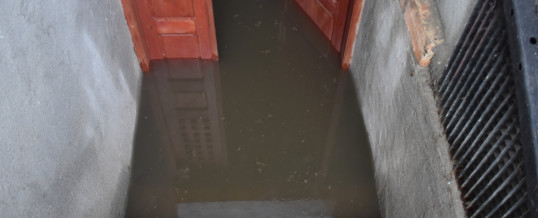
As of 2018, 15% of American homeowners had flood insurance policies. If you’re one of the 15%, that’s a good start for how to handle flooding. However, there’s certainly more you can do to protect your home so you don’t have to make a claim.
Unfortunately, many American homes aren’t prepared for flooding. If you have a flooded basement, read on to find out what you should do and why you need to call a basement waterproofing company.
1. Turn off Your Electricity
The first thing you need to do is turn off your electricity. Water and electricity do not mix! Even if you have important belongings in the basement, nothing is worth risking your safety over.
When you realize your basement’s waterlogged, get you, your family members, and pets out of the general area right away. Then get to your circuit breaker to turn off your electricity. Make sure to turn off the gas as well, just to be extra safe.
If you can’t reach your circuit breaker, then move onto step 2 (which you should do anyway, even if you can turn off your electricity and gas on your own).
2. Call an Electrician
Next, you need to call a professional electrician to make sure your home is safe to be in. You can either speak with them on the phone or have them make a house call to inspect it. If your circuit breaker is in your basement, then they’ll most likely make a trip out to turn off your electricity safely.
An electrician will also be able to tell you if you can move onto the next steps, or if you have to wait until it’s safe to proceed.
3. Try and Determine the Source of the Flooding
If you can, try and see if you can find the source of the flooding. Some preemptive actions may save you a huge headache later.
For example, if it’s coming from a burst pipe, shutting off the water can drastically reduce the flooding. Or if it’s coming from excessive rain, you can quickly put some sandbags up around the perimeter of your house to prevent further flooding.
4. Move Your Belongings to a Dry Area
Once you’ve gotten the go-ahead that your basement’s safe, you can then move all your belongings from the basement to a dry area. The longer you leave them in there, the higher the risk of damage and mold.
For things that fold in on themselves (such as books and magazines), try and leave them open standing up with the pages separated as much as possible.
5. Do Major Cleanup
To ensure your basement stays dry and mold-free, you’ll have to put in some elbow grease to make sure it’s in decent condition. Otherwise, you may be putting the health of your loved ones at risk.
While your basement may seem relatively dry after the initial cleaning and drying of surfaces, some mold spores may already be thriving on the additional moisture. You should go over every inch and clean it with specialized cleaners or bleach to make sure you kill all the mold spores you can.
Depending on the type of flooring you have and how bad the flooding was, you may also have to rip it up to completely dry the surface underneath.
After, you should ventilate the basement by opening any windows and putting in a large fan.
6. Call Your Insurance Company
Flood damage isn’t usually covered under standard homeowners’ and renters’ insurance; the most coverage you’ll find is for burst pipes or appliance failure.
This is why you should make sure you purchase additional coverage for flooding. If your basement’s already waterlogged, then you’re out of luck here. But if you already purchased this coverage in the past through the National Flood Insurance Program (NFIP), then you’ll get some reimbursement.
In this case, you’ll want to call your insurance provider to make an appointment with one of their adjusters. They’ll come out to assess the damage and make a judgment call on how much you should be reimbursed to handle those repairs.
7. Call a Basement Waterproofing Company
To prevent future flooding from happening, you need to call a basement waterproofing company, like Armored Basement Waterproofing.
They’ll clear out your basement and use special equipment and materials to reinforce the walls, floor, and foundation joints. This is done through a subfloor channel that will redirect water to sump pumps.
You can also have a wall liner installed to get added protection in your basement.
Then, they’ll install a vinyl wall-cove plate; this system lets excess water get out of your basement and back into either the ground or the waterproofing system. In any case, the water won’t end up in your basement.
Lastly, they’ll re-concrete the trench so it’s ready for any tiling you wish to put on. The professional waterproofing should last you through many years of flood season. The time and money spent on this entire process will be all worth it when you won’t have to deal with a flooded basement anymore.
Prevent a Flooded Basement in the Future
While you can’t turn back the hands of time and prevent your flooded basement from occurring, you can certainly prevent one from happening in the future.
By having a professional basement waterproofing company take a look at your property, you can ensure that no matter what situations you face, you won’t end up with a waterlogged basement ever again.
If you want to get your basement professionally waterproofed, then get in touch with us today. We’ll give you a free inspection!
ShareDEC
